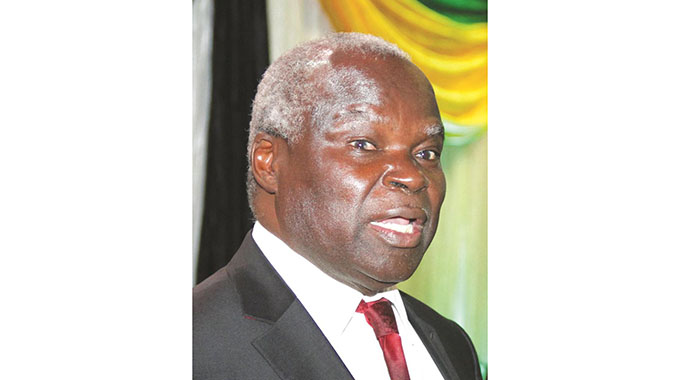SMEs are key to job creation, growth in Africa

Rumbidzai Ngwenya Features Writer
As Zimbabwe and the rest of the continent celebrate Africa Day, the heart and lung of the continent’s economic growth lies firmly in the boom of small and medium-sized enterprises (SMEs).
Today, analysts say, these small and growing businesses create around 80 percent of the continent’s employment, establishing a new middle class and fuelling demand for new goods and services.
The scale of this transformation should not be underestimated for instance, in such small trades such as tailoring.
Governments, the private sector and international investors must consider Africa’s young people and SMEs as central to the stability of Africa’s economy. This sector needs to be nurtured and supported so that Zimbabwe and Africa as a whole benefit.
Just to show how vital SMEs are to the economy, The Herald spoke to Harare’s two master tailors who are running a thriving business.
Fifty-five-year-old Babra Chabuka and her associate, Joseph Venesi (54), owners of Work As Team (WAT) soft furnishing business, are among the SMEs that have survived the tough economy of Zimbabwe through tailoring.
The two have created employment for themselves, family members and others.
They sell fabric, stitch curtains, bed -spreads, and cushions, to name a few and also do installations for individuals and corporations.
It was back in 1987, at Quality Curtains Company when Chabuka and Venesi met and worked together as tailors.
Two years later, they decided to make extra money by sewing bed-spreads, selling them to individuals.
With that they gained more skill and confidence as their customer base slowly grew.
Soon the two moved to be contract workers for various companies including National Carpets, Golden Décor, Curtain Boutique and Creations.
Employing other people was inevitable as their work gained appreciation.
They even engaged Fabrics Library, a company that used to specialise in interior decoration. Chabuka and Venesi were one of the account holders.

Mr Kelivin and wife Lynmary Mulembasoja showing some of the finished articles
By 1991, the two decided to quit their jobs and become full time entrepreneurs.
But when the economy hit the hard rocks, it also affected them as it affected big companies. The work they were putting in as contractors and what they earned was irrelevant.
Soon they opened their own company, WAT, and started importing fabrics, sewing and selling to individuals and corporates.
Now Chabuka and Venesi’s company is doing well despite the prevailing economic situation.
“The decision to start our own company was the best we ever made,” said Chabuka.
“We are doing well but we could be doing better in a stable economy.”
Because most of the fabric is imported, this is a huge challenge as foreign currency shortages persist in the country.
“As a country we need to revive our industries so that we create more jobs and new demand. With growing demand, this could make our business grow as earnings of our customers improve,” said Venesi.
“Importing affects our pricing as we seek to make profit. But then when our products are too expensive, we tend to have fewer customers.
“Most purchases are done through RTGS and this is a challenge for us when we need foreign currency.”
Although they always stand up to be the best, competition from unregistered tailoring companies and individuals is usually present.
Despite the challenges, the company is soldering on.
With their business, they have managed to employ their children.
Chabuka’s son, Kelvin Mulembasoja has even returned home from the Diaspora after he found the going tough.
He is now supporting her mother and her business associate to grow their business. He is now handling all the accounting work and managing business records.
Today Kelvin and his wife Lynmary play a major role in the day to day running of the business.
Venesi also employed his two daughters Edna and Shylet Venesi.
WAT now boasts of a showrooms at Belvedere Square and Manhattan.
They dream of expanding and creating more jobs for Zimbabweans.
“SMEs need to be appreciated a lot because this is where the bulk of the wealth is now being created,” said Venesi. “It’s important for the informal sector to get support in terms of access to foreign currency because we also contribute business to the formal sector.”
President Mnangagwa’s drive to open Zimbabwe for business after years of economic stagnation is set to stimulate the SMEs sector too.
Since he assumed power last November, he has embarked on an aggressive campaign to woo investors to help modernise the country’s infrastructure and promote growth.
“I’m happy with what our President is doing for the country and as tailors we are also optimistic that this will open business for us as SMEs,” said Venesi.
“We are happy about his willingness to support the SMEs, but we want transparency in the way funds and programmes to support SMEs are rolled out. We must weed out corruption and support President Mnangagwa’s fight for zero tolerance to corruption.”
SMEs are a key component of the economic fabric in developing countries, and they play a crucial role in promoting growth, innovation and prosperity.
This sector plays a major role in the country’s economic development.
Its role in terms of production, employment generation, contribution to exports and facilitating equitable distribution of income is very critical.
It constitutes a major source of employment and generates significant domestic and export earnings. As such, the SME sector is a key instrument in poverty reduction efforts.
Small and medium-sized enterprises in Africa represent the largest number of businesses on the continent.
They suffer from lack of financing necessary to grow because most banks prefer to deal with large enterprises which are considered more secure or have collateral.
Analysts say most countries in Africa do not have programmes that give preference to SMEs in government contracts.
They also say that SMEs are victims of their inability to stand in the face of unfair legal and regulatory environments, unlike big firms who have the clout to fight bureaucracy and corruption.
“What is needed is the creation of special funding for SMEs, from both private and public funds. Programmes should be especially dedicated to SMEs, or at least dedicated to give preference to SMEs,” said one economic analyst.
The importance of SMEs in Zimbabwe is acknowledged in Government’s ZimAsset economic turnaround blueprint. The blue print identified as one of its key strategies fostering strategic linkages and formalisation among SMEs and cooperatives across all sectors of the economy.
SMEs have become particularly important given that a majority of the bigger firms are downsizing or closing shop.
Recognising the importance of SMEs, Fig Tree Foundation, a diversified organisation, recently unveiled plans to invest $3 million in Goromonzi District to support small businesses in the next five years.
Zimbabwe and India also signed a Memorandum of Understanding (MoU) for a $2,92 million grant for the supply of additional machinery for SMEs under the Indo–Zimbabwe project.
The Indo-Zimbabwe project, which was established in 2006, has previously received a $5 million grant from India to support the development of SMEs in the country.
As we celebrate Africa Day, it is important to appreciate the role these people play in the continent.
As bigger firms continue to downsize, SMEs continue to flourish and contribute to the country’s GDP.
Helping African SMEs to flourish is crucial not only for Africa but for the global economy, because they create a growing middle class with disposable income, in tandem with market opportunities for new investors, analyst say.
They further contend that the foundation of any long-lasting venture in Africa depends on the continuous empowerment of SMEs and young entrepreneurs.
And there is no doubt that as Africa celebrates its 55th anniversary of the founding of the OAU, now the African Union, Africa’s young people and SMEs remain central to the stability of the continent’s economy.









Comments